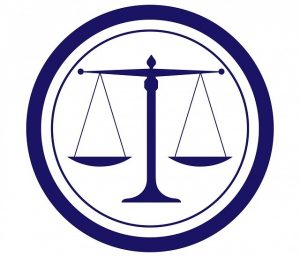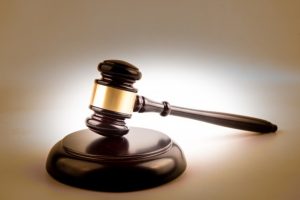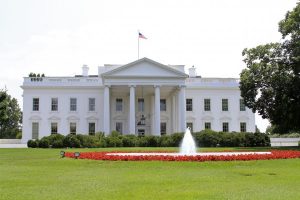Last time, we examined several ways in which we American citizens have been educated about the workings of our government, in large part because of the words and actions of the twice-impeached, four-times-indicted former President, Donald Trump. We looked at three Constitutional Amendments (1, 14 and 25), laws versus norms, pardoning, the importance of the date of January 6, our three branches of government, and ethics guidelines on the Supreme Court. Here we look at four more examples.
The new meaning of MAGA: Make Attorneys Get Attorneys. Trump’s hats – white lettering on a red background – read MAGA. It supposedly stands for “Make America Great Again,” but a more appropriate meaning might well be “Make Attorneys Get Attorneys.” This stems from what is becoming clearer over time, given the January 6th Select Committee of the US House of Representatives and the various indictments against Trump. If some of the names below sound familiar, it’s because these lawyers are now linked with Trump in some of Trump’s four indictments and need legal representation themselves.  It will be interesting to see how many of them lose their law licenses – and thus the way they earn their living. (Note: Giuliani has already had his license suspended in New York and Washington, DC.)
It will be interesting to see how many of them lose their law licenses – and thus the way they earn their living. (Note: Giuliani has already had his license suspended in New York and Washington, DC.)
- Rudolph William Louis Giuliani
- John Charles Eastman
- Kenneth John Chesebro
- Sidney Katherine Powell
- Jeffrey Bossert Clark
- Jenna Lynn Ellis
- Ray Stallings Smith, III
- Robert David Cheeley
How, one may ask, does any of this make America great again?… And why on earth, given Trump’s long history of not paying his attorneys or throwing them under the bus (e.g., Michael Cohen), would these lawyers have chosen to get anywhere near such a client in the first place?…
SCOTUS decisions and Americans’ preferences. Until 1865, slavery was the law of the land in the United States. While a number of northern (and other) States had abolished slavery, many States, especially in the South, clung to the practice up to that time and advocated for its acceptance in new States. Slavery was abolished by the 13th Amendment to the Constitution – at the legislative level. Needless to say, this was not a popular decision among many Americans, especially in the southern States. In our system, once a law is passed, if it is legitimately challenged in the courts, more decisions are made. Even though slavery was abolished, its ugly cousins – segregation, legal discrimination, lynchings (i.e., murders), and the honoring of officials and military leaders who’d led the Confederacy – continued. When the Supreme Court of the United States (SCOTUS) had to intervene when some of these practices were challenged, and SCOTUS ruled against segregation and the like, additional laws, such as the Civil Rights and Voting Rights Acts (1964 and 1965, respectively), were passed.  When SCOTUS makes a decision, laws are passed to conform, new mindsets start to sink into American society, precedence is established, and the courts tend not to turn back the clock. (There are some egregious exceptions, e.g., Plessy v Ferguson, 1893, and the 2013 “gutting” of the Voting Rights Act.) This respect for precedence is referred to as Stare Decisis, “a Latin term that means ‘let the decision stand’ or ‘to stand by things decided’; [it] is a foundational concept in the American legal system.” As the American Bar Association states, “Of course, courts often hear cases where following precedent may lead … to unjust outcomes. In those cases, the judges may offer reasons or legal nuances to avoid following precedential decisions or to outright overturn prior rulings. For good reason, courts and judges often feel obliged to explain their reasons in such cases. Many rulings are based on specific facts at a given moment in history, and as the nation develops and changes – as a result of new technologies or demographic shifts, for example – the justifications and interpretations of prior decisions may lose support.”
When SCOTUS makes a decision, laws are passed to conform, new mindsets start to sink into American society, precedence is established, and the courts tend not to turn back the clock. (There are some egregious exceptions, e.g., Plessy v Ferguson, 1893, and the 2013 “gutting” of the Voting Rights Act.) This respect for precedence is referred to as Stare Decisis, “a Latin term that means ‘let the decision stand’ or ‘to stand by things decided’; [it] is a foundational concept in the American legal system.” As the American Bar Association states, “Of course, courts often hear cases where following precedent may lead … to unjust outcomes. In those cases, the judges may offer reasons or legal nuances to avoid following precedential decisions or to outright overturn prior rulings. For good reason, courts and judges often feel obliged to explain their reasons in such cases. Many rulings are based on specific facts at a given moment in history, and as the nation develops and changes – as a result of new technologies or demographic shifts, for example – the justifications and interpretations of prior decisions may lose support.”
We can probably state with some certainty that most Americans are glad that slavery was made officially illegal with the Constitutional Amendments passed after the Civil War, and equally glad that SCOTUS upheld challenges to racist laws. A despicable practice that was once widely accepted in the United States and popular among significant numbers of citizens is now generally condemned.
We can see a similar situation with Roe v. Wade, which was decided by SCOTUS in 1973 following a challenge to a state law (Texas), as opposed to a federal one; Roe legalized a woman’s right to an abortion. Over time, the majority of Americans (about 62%) have come to support Roe, even when they do not necessarily like abortion. Right-wing activists had been working for decades to overturn Roe, however, and pro-choice Americans were not paying enough attention to those goals – in part because, in congressional confirmation hearings, right-leaning Supreme Court Justice nominees referred to Stare Decisis when questioned about abortion. Much to many Americans’ dismay, those same SCOTUS Justices threw Stare out the window in June 2022 and overturned Roe in a 6-3 vote. Trump had kept his promise to appoint Justices who would overturn Roe. Those Justices were three of the six in the Dobbs decision: Neil Gorsuch and Brett Kavanaugh, who effectively lied during their hearings, and Amy Coney Barrett, who had led Americans to believe that Stare Decisis could be challenged if she thought that the Court had made an error in its decision. It is not all that surprising, then, that millions of Americans took to the streets after Dobbs; even in red states, many Americans voted against restrictive abortion laws, and reproductive rights is becoming a highly significant issue in the 2024 election cycle, which will almost certainly favor Democrats.
What happens when someone is indicted (for those of us who never will be). Watching Donald Trump heading four times to courtrooms to be arraigned is historic.  Never has a former American president been indicted even once, let alone four times, for state and federal crimes. In our system of justice (although all States and the federal system have slightly different processes), someone who is suspected of having violated a law, once apprehended, goes through several stages before trial: s/he is investigated by various agencies, s/he is charged with the crime/s, s/he is arraigned and asked to plead guilty or not guilty, “discovery” is launched, there may be plea bargaining, there are preliminary hearings and pre-trial motions, and a trial begins. Laws govern each step, and attorneys for both sides are legally held to high standards of behavior and professionalism. (Obviously, the system is not perfect, and criminal justice reforms are being called for in many jurisdictions.)
Never has a former American president been indicted even once, let alone four times, for state and federal crimes. In our system of justice (although all States and the federal system have slightly different processes), someone who is suspected of having violated a law, once apprehended, goes through several stages before trial: s/he is investigated by various agencies, s/he is charged with the crime/s, s/he is arraigned and asked to plead guilty or not guilty, “discovery” is launched, there may be plea bargaining, there are preliminary hearings and pre-trial motions, and a trial begins. Laws govern each step, and attorneys for both sides are legally held to high standards of behavior and professionalism. (Obviously, the system is not perfect, and criminal justice reforms are being called for in many jurisdictions.)
Indictment takes place during the “charging” step. “After the prosecutor studies the information from investigators and the information they gather from talking with the individuals involved, the prosecutor decides whether to present the case to the grand jury. When a person is indicted, they are given formal notice that it is believed that they committed a crime. The indictment contains the basic information that informs the person of the charges against them.”
Therefore, the journey from allegedly committing a crime and being tried for it is not usually a fast or arbitrary process, nor does it rely on a small group of prejudiced or self-interested persons (although we know that problems do take place). For the man who was ostensibly once among the most powerful people on earth to have been indicted four times in as many jurisdictions is not, as Trump and his supporters falsely claim, a “witch hunt” by the Biden Administration but the result of millions of hours of work on the part of mostly dedicated, hard-working, law-abiding Americans – the majority of whom are civil servants, not elected officials. The system is working – but we must work diligently, on many fronts, to ensure that Trump’s disgraceful behavior is an outlier and that he becomes the only former president to have these enormous stains on his record.
How Trump’s potential imprisonment might affect Secret Service protection. Now that Trump is facing 91 felony counts, the question is forefront: if he goes to prison (as almost anyone else would have long ago if they had been charged and found guilty on similar counts), how does that mesh with Secret Service obligations to protect former presidents for life? While skeptics may feel that SS protection outweighs incarceration and that Trump will never see the inside of a jail cell (which Trump greatly fears), others have offered suggestions for how it can happen.
- Move inmates around to figure out who to put him near, such as non-violent offenders.
- Schedule “shift agents” to walk around with Trump when he’s not confined.
- Prisons – especially federal prisons – are already fairly safe locations with their own security.
- The Secret Service could deploy a protective detail at the prison, “with agents stationed in the cellblock, the prison yard, or otherwise in the vicinity of the VIP inmate.”
- The SS could “hand off its protective responsibilities to the Bureau of Prisons or appropriate state-level Department of Corrections.”
- An agent could be stationed in an administrative office.
 So, this is perhaps a golden opportunity for the SS to get creative – for the sake of our democracy.
So, this is perhaps a golden opportunity for the SS to get creative – for the sake of our democracy.
Civics lessons are important. Let us continue to learn from them, in our ongoing desire “to form a more perfect union.”
